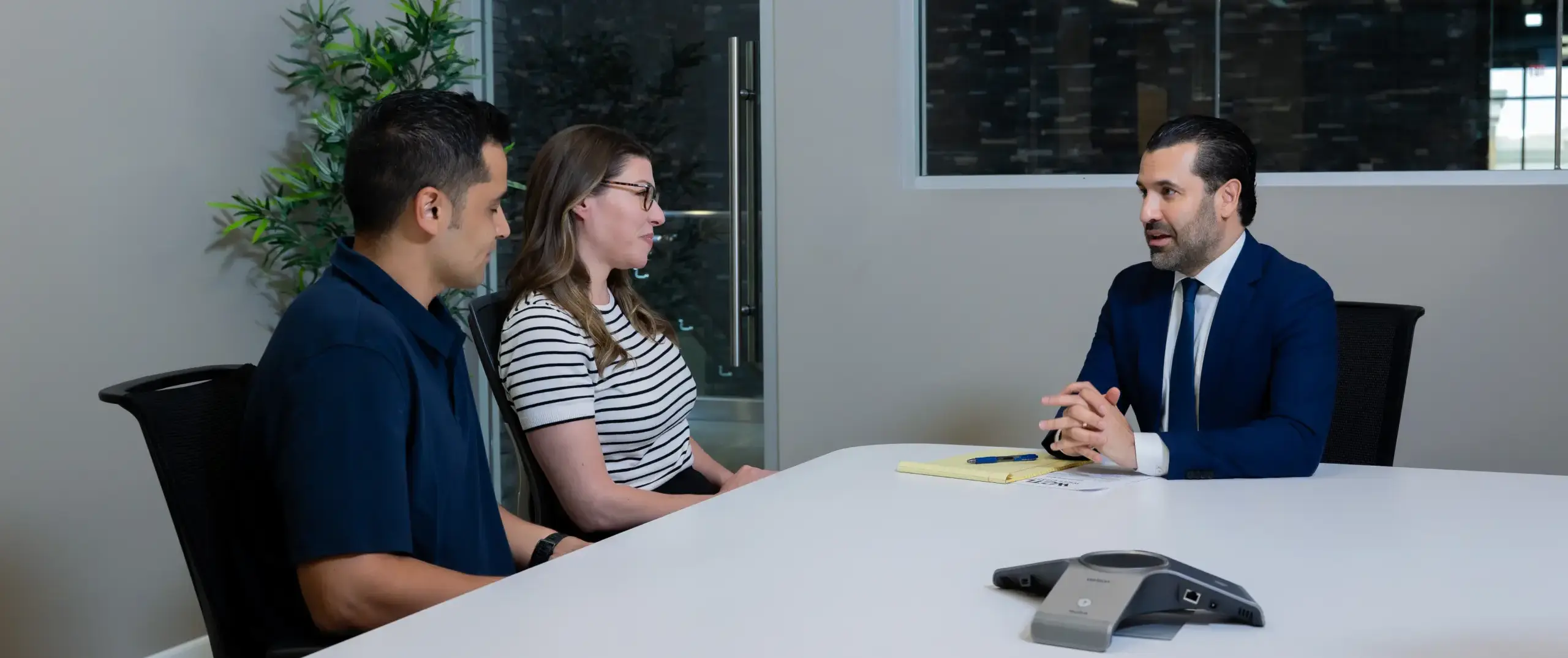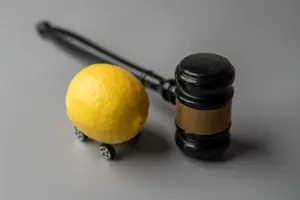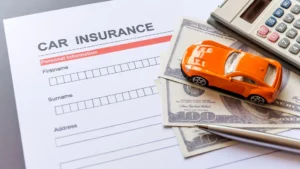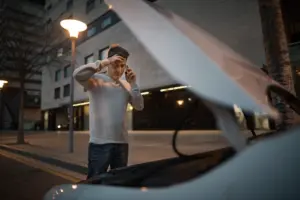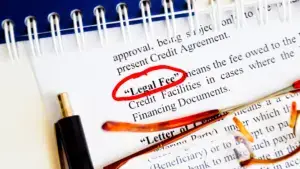Buying a new car should be an exciting experience that provides people with a number of new opportunities. But if your vehicle keeps having the same issues no matter how many times you take it in for repairs, you might be dealing with a lemon. If the issue is serious enough, it may take only one or two attempts at the repair shop for your vehicle to qualify as a lemon.
Whether it’s a persistent engine issue, electrical malfunction, or safety concern, if you have bought a vehicle that is suddenly experiencing problems, you have the right to ask the manufacturer to buy your vehicle back, and reimburse you for any and all expenses that resulted from your purchase or lease, such as towing, registration, and rental expenses.
At West Coast Trial Lawyers, our team of lemon law attorneys are committed to fight for their clients’ rights. With over 20 years of experience representing clients from all walks of life, our team of lemon law lawyers understands the struggles vehicle owners face, and are prepared to give them the legal support and guidance they need. Manufacturers are loath to buy back your car, and it’s important that you have skilled litigators who have handled these types of cases.
To schedule a FREE consultation, you can connect with us by calling (213) 927-3700 or completing our convenient online contact form.
Why Choose West Coast Trial Lawyers For Your Lemon Law Claim
A History of Success
We’ve spent nearly three decades fighting for victims, consistently delivering outcomes they can count on.
Transparent & Reliable Communication
When you have questions, you’ll get answers, quickly, honestly, and from someone who knows your case inside out.
You Don’t Pay Unless We Win
Our fees only come out of a successful outcome. So you can focus on your recovery while we focus on your case.
Extensive Multilingual Team
From your first call to the final outcome, our multilingual team can translate complex legal issues into easy-to-understand steps.
Understanding Lemon Law
Lemon laws are regulations designed to protect consumers who purchase defective vehicles. If a new or qualified used car has problems that persist despite multiple repair attempts, then the manufacturer may entitle the owner to a refund, replacement, or compensation. If the problem is serious enough, a vehicle may qualify as a lemon with only one or two repair attempts made. These laws ensure that consumers are not stuck with unreliable vehicles that compromise safety and usability.
Lemon laws originated to safeguard consumers from faulty products, particularly automobiles. The Magnuson-Moss Warranty Act (1975) is a federal law that provides rights and remedies for buyers concerning auto manufacturer warranty issues. California has enacted it’s own Lemon Law with the Song-Beverly Consumer Warranty Act, and AB 1755 for certain manufacturers who have opted-in to this optional piece of legislation. While the range of remedies varies from state-to-state, lemon laws provide a structured approach to resolve defective vehicle claims efficiently. However, these laws are highly specific and apply differently depending on the manufacturer.
Lemon Law Requirements and Coverage
Lemon law requirements and coverage can differ significantly from state to state, but the core objective remains the same: to protect consumers who purchase or lease defective vehicles. For instance, the California Lemon Law mandates that manufacturers must either replace or repurchase vehicles that exhibit significant defects impairing their use, value, or safety. To qualify, the vehicle must have been bought or leased from a California dealer and the repair attempts performed during the manufacturer’s expressed written warranty period.
If a manufacturer cannot conform the vehicle to its express warranties after a reasonable number of repair attempts, they are required to provide a replacement vehicle or refund the purchase price or lease cost. Understanding these nuances is crucial in making a claim.
How to File a Claim
In order to file a lemon law claim, it is critical to have all of the necessary information that is relevant to your claim. However, the process itself is not as unique as some people might expect.
- Document all attempts to repair the motor vehicle’s issue.
- Notify the manufacturer or dealer in writing, giving them a chance to resolve the problem.
- If unresolved, file a lawsuit or initiate arbitration with a lemon law lawyer who can guide you through the entire process and will file a lawsuit against the manufacturer.
What Documents Do You Need for a Lemon Law Case?
- Purchase or lease agreement
- Repair invoices and service records
- Manufacturer communication
- Lemon Law eligibility documentation
- Written correspondence with the dealership or manufacturer
How Long Do You Have to File a Lemon Law Complaint?
According to the Song-Beverly Act, the statute of limitations for all Lemon Law claims is 4-years from the date that the express warranty was broken. However, California Assembly Bill No. 1755 reduced the statute of limitations for all Lemon Law claims to only one year after the expiration of the applicable express warranty, if the manufacturer opted-in to this additional piece of legislation. As such, timing is crucial, and you should consult with an attorney immediately if you believe your vehicle is a Lemon.
Common Delays in Lemon Law Cases and How to Avoid Them
While the chances of encountering a lemon vehicle is less than 1% according to preliminary data, victims of defective vehicles should try to minimize the amount of factors that could delay their lemon law claim against the manufacturer. For instance, incomplete documentation, failure to make repair attempts, and a lack of follow-ups are some of the most common delays found in lemon law cases.
If the manufacturer denies your lemon law claim, it is vital that you request written reasons for denial to understand the issue and should the reason be unacceptable, it is highly recommended to consult a Lemon Law attorney to evaluate your legal options and strengthen your case.
Can You File a Lemon Law Case Without an Attorney?
Generally speaking, anyone can file a lemon law case without an attorney present, but this practice is not recommended because hiring an attorney can significantly increase your chances of success, especially when dealing with manufacturers and legal complexities. Manufacturers are loath to replace or buy back your vehicle, and this is especially true if the manufacturer knows your are not represented by counsel, and thus are unlikely to file a lawsuit.
Should you choose to file a claim without an attorney, you will be susceptible to negotiation tactics that may minimize your compensation or may forget to submit an important piece of evidence that can support your claim. Our firm do offers free consultations and we work on a contingency basis, meaning we only get paid if you win.
Understanding the Differences of Lemon Law vs. Warranty
A warranty covers repairs due to defects within a specified period. Lemon Law applies when repeated repairs fail to fix a serious defect. Protections can apply to both new and leased vehicles that have been repaired multiple times and still deemed defective. For instance:
- Manufacturer Warranty: Covers defects for a set time or mileage.
- Extended Warranty: Additional coverage after the standard warranty expires.
- Lemon Law: Legal recourse if a defect substantially impacts the use of the vehicle.
What If Your Warranty Has Expired? Do You Still Have Lemon Law Rights?
In California, Lemon Law protection does apply if your car’s warranty expires, however, due to the new provisions found in California Assembly Bill 1755, victims must file a lawsuit within one year after the warranty ends, but no more than six years after the vehicle’s original delivery date. Additionally, you must have alerted the manufacturer or the dealer of the issue during the period of the express warranty.
However, it is important to note that once your manufacturer issued warranty has expired, you have one year to file a lemon law claim. Warranties or service contracts issued by your dealership or from third-party companies do not extend the time to file a lemon law claim.
Who Qualifies for a Lemon Law Claim?
In order to determine if your vehicle qualifies as a “Lemon”, the following issues must be exhibited:
- A substantial defect that impairs use, safety, or value.
- The defect persists despite reasonable repair attempts (between 1-4 depending on the severity of the issue).
The issue must occur within a certain time or mileage limit.
Do Leased Vehicles Count for Lemon Law?
Leased motor vehicles are not exempt from lemon law protections. In many states, including California, the law covers leased vehicles, granting lessees the same lemon law rights as purchasers. This means that if a leased vehicle has a significant defect that impairs its use, value, or safety, the lessee is entitled to the same remedies, such as a replacement vehicle or a refund.
To qualify, the defect must be reported to the manufacturer during the warranty period, and the manufacturer must be given a reasonable opportunity to repair the vehicle. This ensures that lessees are not left without protection when dealing with defective vehicles.
What If Your Car Doesn’t Qualify?
Vehicles must demonstrate a pattern of defects to be considered a lemon, so not all vehicles with defects qualify for protection. If your car does not meet the legal definition of a lemon, consider other options:
- Warranty Repairs: Even if the Lemon Law does not apply, your motor vehicle may still be covered under the manufacturer’s warranty.
- Consumer Protection Laws: Some states have broader consumer protection laws that may allow you to seek compensation.
- Trade-In or Sell: If the car is drivable but problematic, trading it in or selling it to a private buyer may be an option.
How to Negotiate the Best Outcome
If you’re pursuing a claim, negotiating effectively can impact your final settlement. Here are some tips to strengthen your case:
- Present Strong Documentation: Keep detailed records of repair attempts, invoices from the repair facility and correspondence with the manufacturer to support your case.
- Understand Your State’s Law: Knowing the exact legal provisions applicable in your state can strengthen your bargaining power.
- Seek Professional Help: An attorney can negotiate aggressively on your behalf and ensure you receive fair compensation.
- Be Willing to Settle: Sometimes, a cash settlement may be the quickest and most favorable resolution if you’re looking to move on from the issue.
Can You Sell a Lemon Car After Winning a Case?
If you receive a replacement or refund, the manufacturer usually takes possession of the defective vehicle. However, if you opt for a cash settlement, you may still own the car. In this case:
- Some states require that the vehicle’s title be branded as a “Lemon Law Buyback.”
- You must disclose the vehicle’s history if you choose to sell it.
- Selling a lemon can be challenging, as buyers may be hesitant to purchase a vehicle with a documented defect history.
Compensation: What You Can Expect
Winning can result in various outcomes, depending on the settlement agreement. Here’s what you can expect:
- Full Refund: The manufacturer may reimburse the full purchase price, including taxes, fees, and other associated costs.
- Replacement Vehicle: In some cases, the manufacturer may offer a comparable new vehicle instead of refunding the purchase price.
- Cash Settlement: A negotiated amount to compensate for your losses without requiring you to return the car.
- Attorney’s Fees: The Lemon Law statutes require the manufacturer to cover attorney’s fees, so you don’t have to pay out of pocket.
Cost and Fees
Filing a lemon law claim often involves minimal out-of-pocket costs. In California, if the buyer prevails in their claim, the manufacturer is required to cover the consumer’s attorney fees and other related costs. This means that pursuing litigation does not typically burden the consumer financially.
In fact, our attorneys work on a contingency fee basis, meaning they only get paid if our client wins the case. This fee is usually a percentage of the award or settlement and is paid by the manufacturer, not the consumer.
Overall, the financial risk to consumers is minimal, making it easier for them to seek justice and compensation for defective vehicles without worrying about prohibitive legal costs.
Schedule your FREE Case Evaluation with West Coast Trial Lawyers
If you suspect you were sold a lemon, you may be entitled to compensation. With the right approach, you can secure a fair resolution and avoid prolonged headaches and disputes. At West Coast Trial Lawyers, we will protect your rights and advocate on your behalf, so you’re compensated for your losses.
Call us for a FREE case review at (213) 927-3700 or reach out via this quick online contact form.
Frequently Asked Questions About Lemon Law
Can I Return My Car if I Think It Is a Lemon?
You cannot automatically return your car simply for thinking it is a lemon. You will have to allow the manufacturer or the authorized dealer a reasonable number of attempts to address the defect. If they cannot fix it, then you may be entitled to a buyback, vehicle replacement, or cash settlement under California’s Lemon Law.
How Long Do I Have to File a Lemon Law Claim?
You will generally be given four years to file a lemon law claim starting from the date you experienced the issue with your vehicle, not when you purchased it. This timeframe is relevant to new and used cars, as long as the used car was sold with a warranty.
Be sure to act promptly as delaying this process can impact your opportunity to acquire a successful outcome. Such cases can also be complex, so speaking to a qualified lemon law attorney is advisable to help you understand your legal rights and options.
Do I Need to Go to Court to Settle My Case?
Not necessarily. Most lemon law cases can be resolved outside of court through negotiation and settlement. Manufacturers will usually agree to a refund, vehicle replacement, or a cash settlement without the need to go to trial. This especially applies if you have strong evidence at hand. But, if the manufacturer refuses to reach an agreement or denies responsibility, taking your case to court may be a last resort if all else fails.
